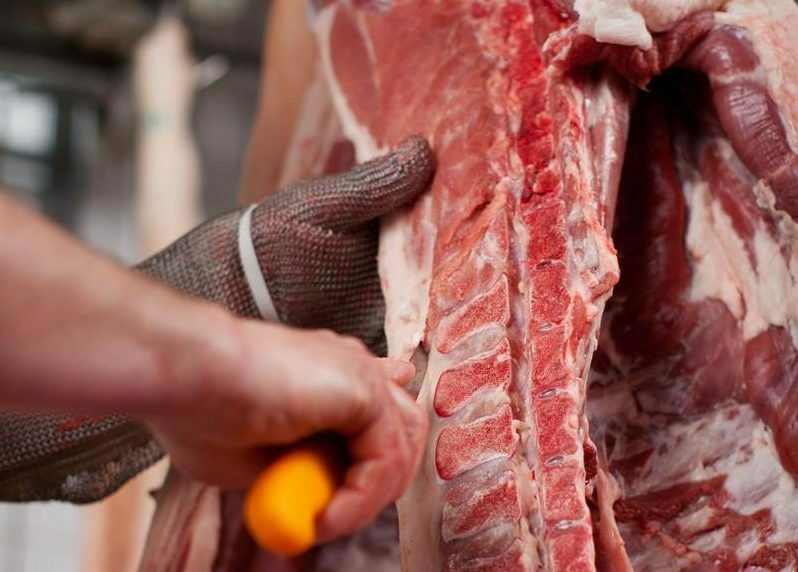Many employers are “putting profit before the health and safety of workers” with “dangerous working conditions” across the meat sector in Ireland, according to the Migrant Rights Centre Ireland (MRCI).
In a new report published today (Wednesday, November 25), MRCI spoke to over 150 workers across 13 counties.
Employees spoken to included de-boners, cutters and trimmers, kill line operators, packing hall operators, chill room operatives, cleaners, supervisors, storage, dispatch and warehousing and lairage workers.
- Almost 60% of participants said they had been injured at work;
- 62% said they had not received enough training;
- 87% of workers said that they had not had the opportunity to progress or be promoted since starting;
- 90% of meat processing companies do not offer sick pay to their workers in the event of injury or illness;
- 27% said they are not paid extra if they work overtime;
- 28% of the workers on the lowest salaries (€12.00 and below) have been working for between four and 15 years.
Of the respondents injured at work, reported injuries include: regular lacerations and bruises; repetitive strain; chronic back pain; skin disorders; eye injuries; bone fractures; loss of fingers and limbs; burns; and respiratory problems.
According to the report, it is claimed: “Workers explained that these injuries occur because of faulty tools or machinery; none or limited training on health and safety or on how to use equipment properly; lack of protective measures or equipment; exposure to toxic chemicals and high noise levels.”
The document quoted one worker as saying: “Most of the time if people are working on machinery, they are not being trained – there’s no guidelines on the machinery on what the operator must do.”
Another worker is quoted as stating:
When the factory needs to kill 500 cows, if people don’t show up we still have to meet that target – they get in inexperienced people and there’s loads of accidents as a result.
Bríd McKeown, workplace rights coordinator with the MRCI, said: “This research shows that workers feel under pressure to work at unreasonable and unsafe speeds on the production line.”
The study claims that workers “are often expected to do the job of two people, which can lead to physical injuries”.
One worker said: “The speed of the line has to change. De-boners who are paid per kilo are under pressure to make the production line go fast. You have to be a robot to catch up with the speed.”
The report continues, claiming: “Workers are treated as disposable, and there is a direct correlation between feeling replaceable and being afraid to speak out and lose your job and immigration status.
This study shows that there are many instances of bullying and discrimination. 43% of workers felt verbally bullied and 35% felt psychologically bullied. Of those, the vast majority, 96%, said their employer did not take effective action after they complained.
Calling for a “new approach”, McKeown concluded: “We are calling on the government to establish a Joint Sub-Committee of Business and Agriculture to oversee this, and for an overhaul of the work permit system so that workers can change jobs and stand up to exploitation without fear of becoming undocumented.”
